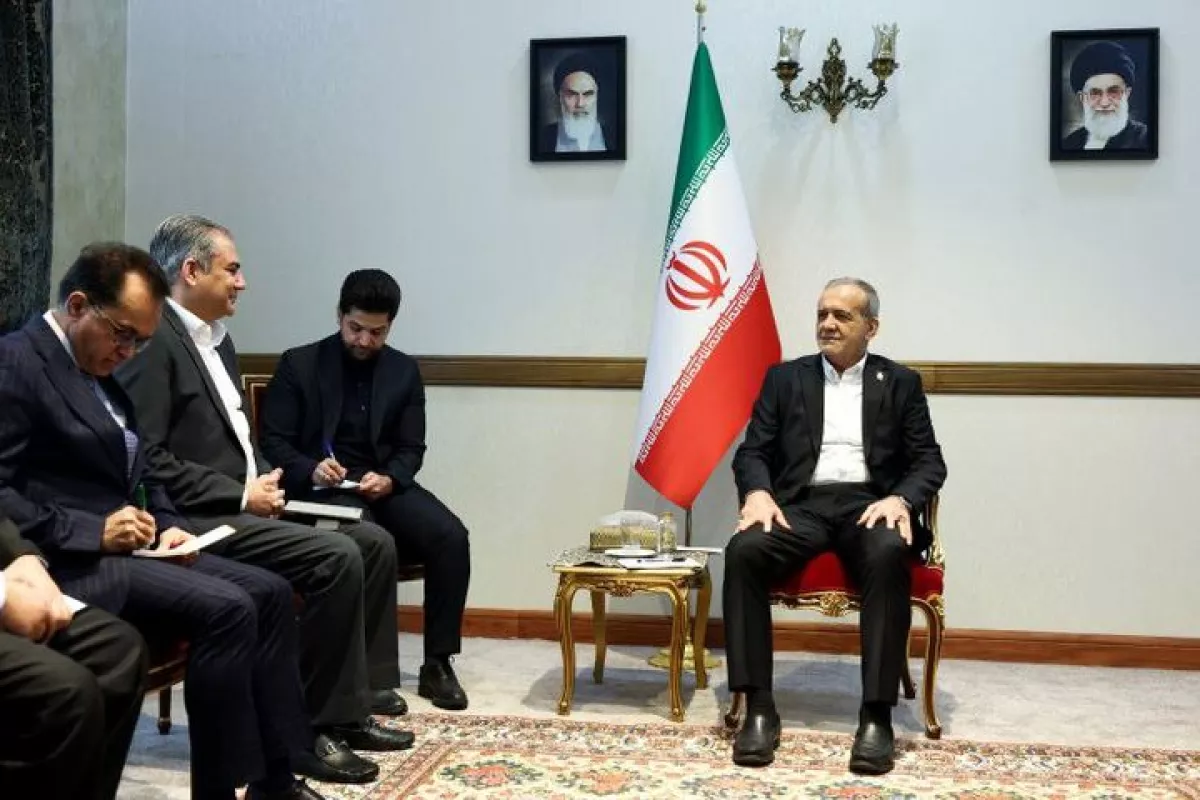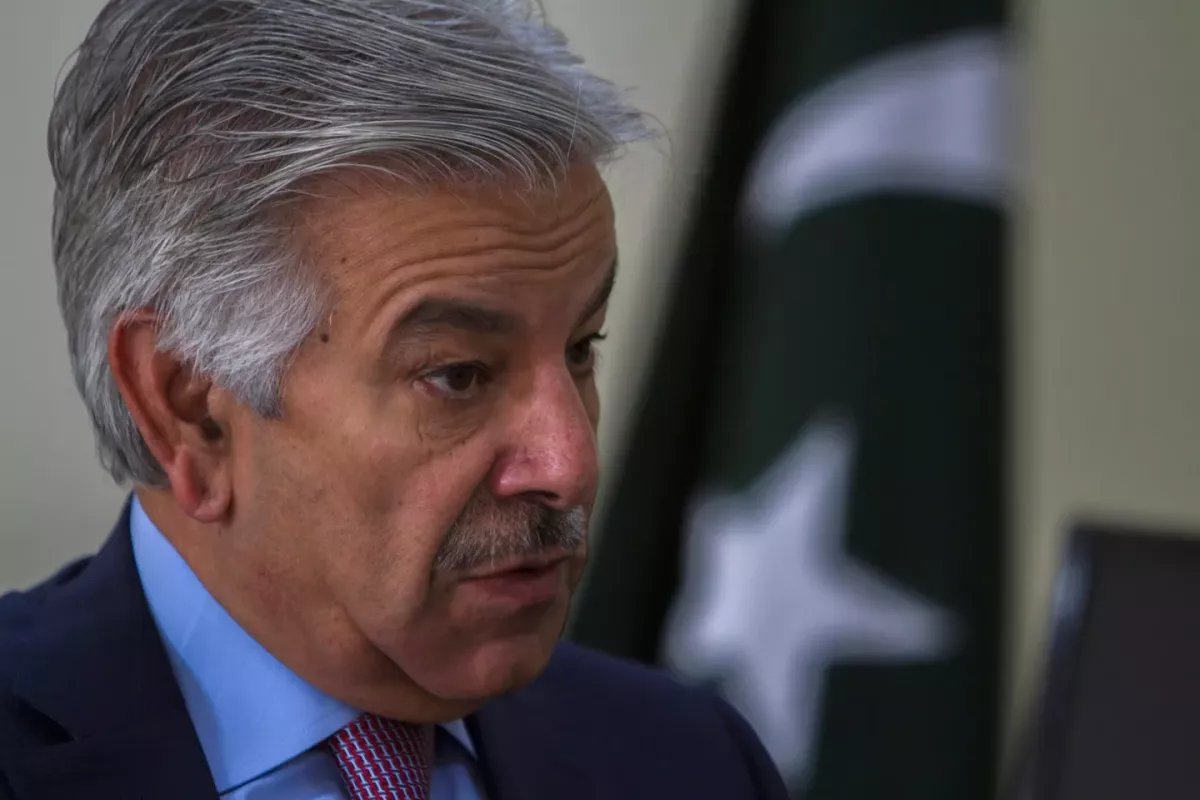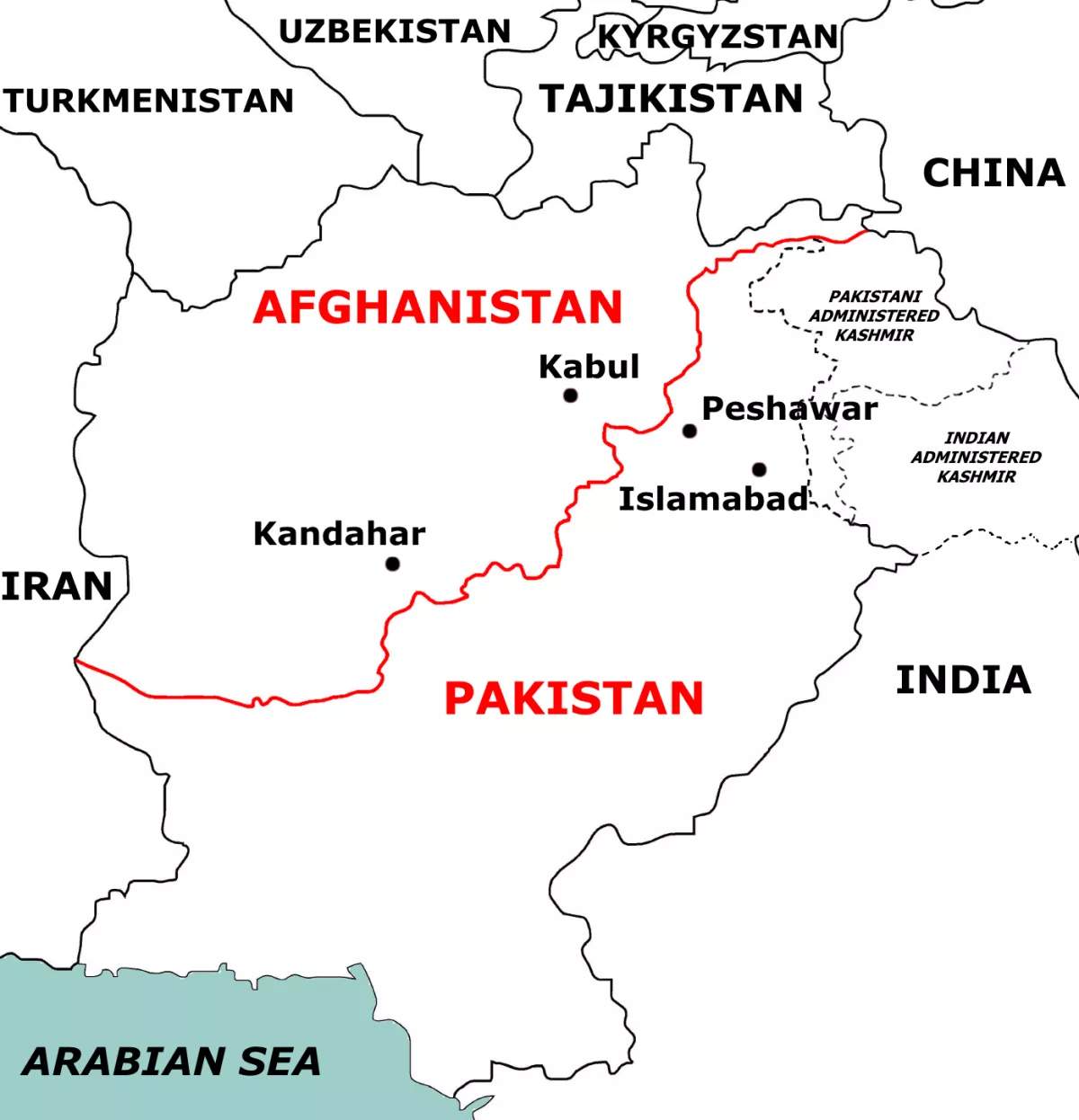Pakistan and Afghanistan: tensions along the border Analysts discuss escalating conflict
To the untrained eye, recent developments in Afghanistan–Pakistan relations seem unusual. Historically, Pakistan has frequently provided humanitarian assistance to the Afghan people. The two countries are also linked by ethnic ties, as a significant portion of their populations are Pashtun. So what has caused the situation to escalate into armed clashes?

Recently, during a meeting with Pakistan’s Interior Minister Mohsin Naqvi, Iranian President Masoud Pezeshkian expressed Tehran’s readiness to act as a mediator between Pakistan and Afghanistan to resolve their disputes, reports Mehr. The Iranian president emphasised the need for efforts to reduce tensions and prevent conflicts in the region.
“Today, more than ever, it is essential for Muslim countries to stand together in unity and brotherhood against common enemies,” he added.
On October 29, Pakistan stated that talks on a long-term truce with Afghanistan “failed to bring about any workable solution,” warning that it would take steps to protect its people, reports AFP.

On October 29, Pakistan’s Defence Minister Khawaja Muhammad Asif stated that Islamabad is capable of completely destroying the Taliban regime in Afghanistan if necessary. The statement came amid the collapse of truce negotiations.
“Let me assure them that Pakistan does not require to employ even a fraction of its full arsenal to completely obliterate the Taliban regime and push them back to the caves for hiding,” Asif wrote in a post on social media platform X.
So what is happening between these two countries? Which forces are causing the discord? It seems that such sharp contradictions between them have not been seen before. Is there a chance for reconciliation, or does this risk escalating into yet another modern war?
Well-known regional experts shared their assessment of the situation in a discussion with Caliber.Az.

Sergey Danilov, deputy director of the Centre for Middle East Studies (Kyiv), notes that relations between the Taliban and Pakistan have never been smooth.
“All Pashtun governments in Afghanistan, regardless of their orientation, have never recognised the legitimacy of the border between the two countries. From a Pashtun perspective, the line drawn by the British as a boundary divided one people. Pakistani authorities could achieve temporary cooperation and situational alliances with the Taliban, but the Afghans never abandoned their convictions.
The Taliban used Pakistan’s intelligence services and army for their own purposes, but felt no gratitude for the unprecedented assistance they received, often at the expense of Pakistan’s relations with the United States.
When the Taliban seized power in 2021, the only conditions effectively imposed on them were to stay within state borders, refrain from attacks on neighbours, and not provide refuge to cross-border terrorist groups.
Overall, the Taliban adhered to these requirements, except for some incidents on the borders with Iran and Tajikistan. In addition, there was covert support for the Pakistani Taliban.
The Tehrik-e-Taliban Pakistan (TTP) — the Pakistani Taliban — maintains close contacts within the Afghan Taliban establishment, including with the highly influential Haqqani network,” the researcher explained.
According to him, depending on the domestic political situation in Pakistan, the TTP periodically intensifies its terrorist activities.
“The latest spike in TTP terrorism has already led to clashes between the Afghan Taliban and the Pakistani army, accompanied by rocket and bomb strikes on Kabul and other Afghan cities. Islamabad blames India for supporting the Taliban, which is unsurprising given the recent Pakistan–India escalation and the growing ties between Kabul and New Delhi.
However, attention should be paid to recent reports that the Taliban requested certain types of weapons from Russia, as well as Moscow’s intention to recruit Afghans for participation in combat operations in Ukraine. Relations between the Taliban and Russia are not very active, but they are consistent. For Russia, the return of Afghan refugees from Iran and the likely expulsion of Afghans from Pakistan opens a window of opportunity for mass recruitment of manpower. The recent escalation on the Pakistan–Afghanistan border has already sparked discussions in Pakistan about the possible deportation of Afghans,” Danilov said.

Russian Middle East expert and head of the Centre for Afghan Policy Studies, Andrei Serenko, says that relations between Afghanistan and Pakistan have never been simple.
“Since the birth of Pakistan in 1947 and continuing to the present day, there have been serious sources of tension between Kabul and Islamabad, making these neighbouring countries more ‘sleeping enemies’ than good partners.
The main factor is the border line separating Afghanistan and Pakistan. Kabul calls it the ‘Durand Line,’ which originated from the dissolution of the British colonial legacy in India. No government in Kabul, from 1947 until today, has recognised the Durand Line as a legitimate state border. This has united Afghan kings, Afghan communists, Afghan mujahideen, Afghan republicans, and finally the Afghan Taliban. None of them have accepted the current border line, which left territories that Kabul has always considered its own under Pakistan’s control.
Islamabad has always regarded the unresolved recognition of its border with Afghanistan as a very serious issue and has sought forces among Afghan political and religious movements willing to recognise the Durand Line. Initially, the Pakistani establishment pinned its hopes on mujahideen groups fighting the communist PDPA [People's Democratic Party of Afghanistan - ed.] regime and Soviet forces in the 1980s, then on the Taliban, supporting their rise to power in the late 1990s and again in 2021.
However, Islamabad’s efforts proved unsuccessful.
Traditionally weak central governments in Kabul — whether monarchists, communists, mujahideen, republicans, or Taliban — have used the border issue with Pakistan to strengthen their position domestically and to win the support of Pashtun public opinion, since Pashtuns, until recently and into the early 21st century, constituted the majority of Afghanistan’s population. Non-recognition of the Durand Line has also served as a resource of legitimacy for central Afghan governments,” the Middle East expert explained.
The current authorities in Kabul are no exception, especially since the Taliban regime has weak legitimacy — it is a group that came to power through armed force and behind-the-scenes deals with foreign states, including Pakistan.
“The Taliban have, for good reason, been considered (and still are considered) ‘agents of influence’ for Pakistan’s intelligence for over 30 years. The Taliban leaders chafe under this label and seek to shed it, to demonstrate to Afghan public opinion their independence from Islamabad, thereby gaining new legitimacy within the country. This is also one of the factors provoking potential confrontations between Kabul and Pakistan.

The Durand Line has made the Pashtun people one of the largest divided ethnic groups in the region. More than half of all Pashtuns in the Af-Pak zone now live in Pakistan, in the Khyber Pakhtunkhwa province.
Islamabad had hoped that the Taliban regime, which came to power in August 2021, would remain obedient to Pakistan, which helped them survive and achieve victory,” the expert explained.
However, he noted, things turned out differently than Pakistan’s security services had planned.
“At least some of the Afghan Taliban, who share the principles of Pashtun nationalism, continued to actively help Pakistani Pashtuns and the Tehrik‑e‑Taliban Pakistan (TTP) movement above all.
TTP leaders were able to build their rear infrastructure in Afghanistan’s border regions. TTP fighters received part of the US weapons and ammunition left in Afghanistan after 2021. This made TTP terrorist operations against Pakistan’s security forces more effective: losses among Pakistan’s military and police rose sharply, jeopardising the state’s ability to maintain control over some areas of Khyber Pakhtunkhwa province.
The Pakistani Taliban began expanding its influence not only in that province but in other parts of the country as well.
For Islamabad today the priority is the elimination of the Pakistani Taliban as a destabilising factor not only in Pashtun areas but across the entire country. However, this task cannot be solved without the consent of the regime in Kabul: only Afghanistan can deprive the TTP of rear infrastructure, weapons, ammunition and other support for Pashtun jihadists.”
Islamabad initially hoped to persuade the Afghan Taliban ‘by good means,’ through negotiations and behind‑the‑scenes deals. Having exhausted those options, the Pakistanis moved to threats and then to demonstrations of force in the border zone: direct strikes on TTP infrastructure and on commanders of the Pakistani Taliban inside Afghanistan, including in Kabul. In October, Kabul responded with its own escalation along the Durand Line, promising strikes on Islamabad.
Today Pakistan and Taliban‑ruled Afghanistan have tried to hold talks first in Qatar and then in Türkiye. However, the prospects for reaching durable agreements and lasting reconciliation appear doubtful. Islamabad needs the elimination of the TTP, at least in its current uncompromising form.
The TTP is unlikely to abandon jihad against Islamabad, just as the current Kabul regime is unlikely to stop supporting its ‘Pashtun brothers’ in the TTP and in Pakistan more broadly. The conditions for further armed confrontation, escalation of tensions, and violence along the Durand Line will remain. In my view, one should not expect a reliable peace in this part of the region,” Serenko concluded.








